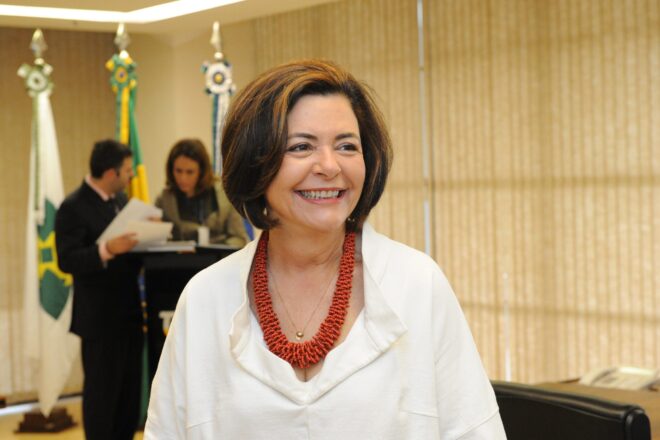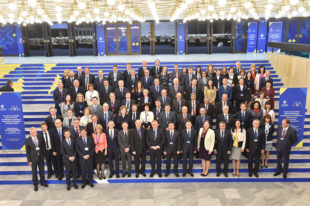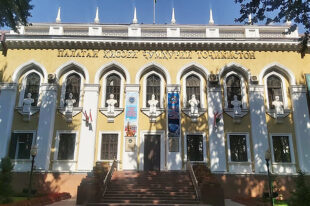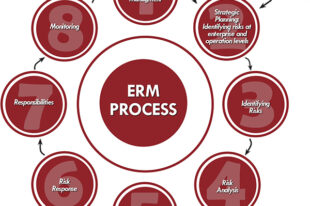The pandemic brought us challenges that we never imagined, and nothing will bring back the loved ones we have lost to this terrible virus. However, our organizational and personal resilience can serve as the basis for positive changes in these difficult times.
by Ms. Ana Arraes, President, Brazilian Federal Court of Accounts
I was Vice President of the Brazilian Federal Court of Accounts (TCU) when COVID-19 broke out worldwide, posing extraordinary challenges to people and organizations. However, this was not the first time I had faced adversity. Having lived through difficult historical periods in Brazilian history, such as the years of military dictatorship, I have been building resilience my whole life by tackling difficult situations and coping with uncertainty.
I knew that there was nothing I could do to change the fact that we were facing a global pandemic. But what could we, as the leaders of TCU, do to ensure we continued to fulfill our mandate?
We very quickly focused on solutions, and in terms of operations, the organization did not miss a beat. In just a few days, TCU adapted its systems for remote work, enabling staff to work full-time from home. In the face of a crisis, quick responses make all the difference to organizational performance and even survival.
But our challenges were not limited to adapting our operations to the new circumstances. As a Supreme Audit Institution (SAI), we had a fundamental role to play in oversight of the government´s emergency planning, budgeting and spending, and overall response to the health emergency. To fulfill that responsibility, TCU carried out hundreds of audits regarding the use of resources in combating the COVID-19 outbreak, with the aim of both ensuring appropriate spending and recovering public funds that had been misspent.
The stakes of this work were high. We must bear in mind that the global health crisis is not only about numbers; it is about people. When I took over as President of TCU in January 2021, the second wave of the pandemic was starting to hit the country, and our entire society was suffering its devastating effects.
In Brazil, we saw more than 600,000 people lose their lives to the illness. Millions of Brazilians lost their livelihood due to the economic consequences of the pandemic, unemployment is still extremely high, and food insecurity haunts many.
This tragedy will leave a mark in our history. The pandemic brought us challenges that we never imagined, and nothing will bring back the loved ones we have lost to this terrible virus. However, our organizational and personal resilience can serve as the basis for positive changes in these difficult times.
By mitigating problems and focusing on solutions, TCU has emerged stronger than ever and more prepared to face any challenges that come our way. One key lesson we learned was the importance of information technology to our continuity of operations. We identified the need to further invest in information security, to enable us to work even more effectively in a virtual environment.
As an organization, TCU took advantage of the opportunity to re-think and re-design many of our practices, to ensure we are resilient when faced with similar crises in the future. On a broader scale, the INTOSAI community has a similar opportunity.
For my part, I hope the pandemic teaches us to be more conscious of the central role of the state in guaranteeing the dignity of all people. And I hope it drives home the critical role that we, as SAIs, play in ensuring governments judiciously use limited resources for the public good and act in a coordinated manner to protect the vulnerable. Social disparities are more evident now than ever before—not only in Brazil, but around the world. We urgently need to address this concern, individually as SAIs and collectively as the INTOSAI community.
Next year, we will host the Congress of INTOSAI (INCOSAI) in Rio de Janeiro, and we will then lead INTOSAI for three years. A key theme of the Congress will be the “Role of SAIs in Emergency Situations.” All SAIs are encouraged to share their experiences in these discussions, which will be led by the U.S. Government Accountability Office (GAO). TCU will then broaden the conversation to a closely connected theme—how INTOSAI can more effectively use its collective knowledge and global voice for the benefit of people around the world.
With its extensive advocacy and support work on behalf of SAIs, and with insights gleaned from audits and other activities, INTOSAI has an opportunity to meaningfully contribute to regional and international efforts related to accountability, transparency, and other key issues. Through cooperation and joint effort, we can amplify our impact and move forward with optimism, solidarity, and greater resilience than ever before.






